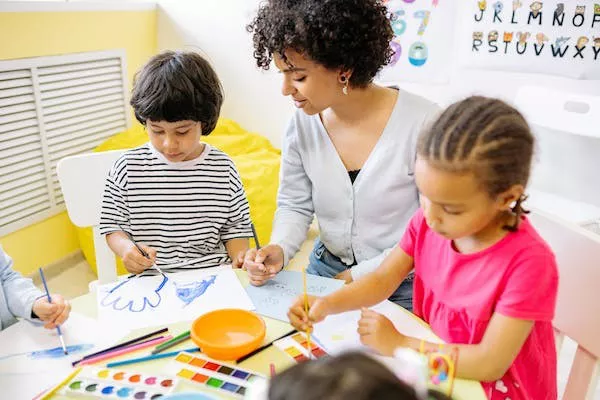Becoming a parent is a transformative journey filled with joy, love, and countless challenges. To navigate the complexities of parenthood successfully, many individuals turn to parenting classes for guidance and support. Parenting classes offer a wealth of knowledge, practical skills, and a supportive community that can empower individuals to become confident and effective parents. In this comprehensive article, we will explore what you can expect to learn in parenting classes, the benefits they provide, and how they can shape your parenting journey.
Child Development and Behavior:
Parenting classes often begin by delving into the fascinating world of child development and behavior. Participants gain insights into the physical, emotional, and cognitive milestones children experience as they grow. Understanding these developmental stages helps parents set realistic expectations, provide appropriate support, and respond effectively to their child’s needs.
Topics covered may include:
Infant development: Exploring the physical and cognitive growth of infants, understanding attachment, and promoting healthy bonding.
Toddlerhood: Navigating the challenges of toddler behavior, including tantrums, independence, and toilet training.
Preschool and school-age children: Addressing social and emotional development, discipline strategies, fostering self-esteem, and effective communication.
Effective Communication and Positive Discipline:
Parenting classes often emphasize the significance of effective communication techniques and positive discipline strategies. Participants learn how to establish open lines of communication with their children, promoting healthy parent-child relationships. They gain valuable insights into active listening, conflict resolution, and age-appropriate ways to communicate with their children.
Positive discipline techniques, such as setting boundaries, using natural consequences, and promoting problem-solving skills, are explored. Participants are encouraged to adopt discipline methods that focus on teaching, guidance, and building mutual respect between parent and child.
Health, Safety, and Nutrition:
Parenting classes place a strong emphasis on the health, safety, and nutritional needs of children. Topics covered may include:
Ensuring a safe home environment: Identifying potential hazards, childproofing, and promoting a safe space for children to explore.
Basic first aid and emergency preparedness: Understanding common childhood injuries and illnesses, CPR techniques, and knowing when to seek medical attention.
Nutritional needs: Learning about age-appropriate diets, introducing solids, promoting healthy eating habits, and addressing common feeding challenges.
Parental Self-Care and Well-being:
Recognizing the importance of parental self-care and well-being is a crucial aspect of parenting classes. Participants are encouraged to prioritize their physical, emotional, and mental health. They learn strategies to manage stress, seek support, and find a balance between their role as parents and their personal needs. Nurturing their own well-being enables parents to better care for their children and model healthy behaviors.
Building Supportive Parenting Networks:
Parenting classes often create a supportive community where participants can connect with other parents facing similar challenges. The classes offer an opportunity to share experiences, exchange advice, and build meaningful connections. These networks can be invaluable sources of support, fostering a sense of belonging and reducing feelings of isolation.
Specialized Topics:
Parenting classes may also cover specialized topics depending on the program or participants’ needs. These can include:
Parenting through divorce or separation: Providing guidance on co-parenting, managing transitions, and supporting children during challenging family dynamics.
Parenting children with special needs: Addressing the unique challenges and opportunities associated with raising children with special needs, including understanding their needs, accessing resources, and promoting inclusivity.
Positive parenting for adolescents: Exploring strategies for maintaining strong parent-teen relationships, setting boundaries, and navigating the unique challenges of adolescence.
Conclusion:
Parenting classes offer a wealth of knowledge, skills, and support to individuals embarking on the incredible journey of parenthood. From understanding child development to fostering effective communication and positive discipline, these classes equip parents with essential tools to navigate the challenges they may encounter along the way. By prioritizing parental self-care, building supportive networks, and addressing specialized topics, parenting classes empower individuals to become confident, compassionate, and resilient parents. Embrace the opportunity to learn, grow, and connect with others as you embark on the rewarding adventure of parenthood.


